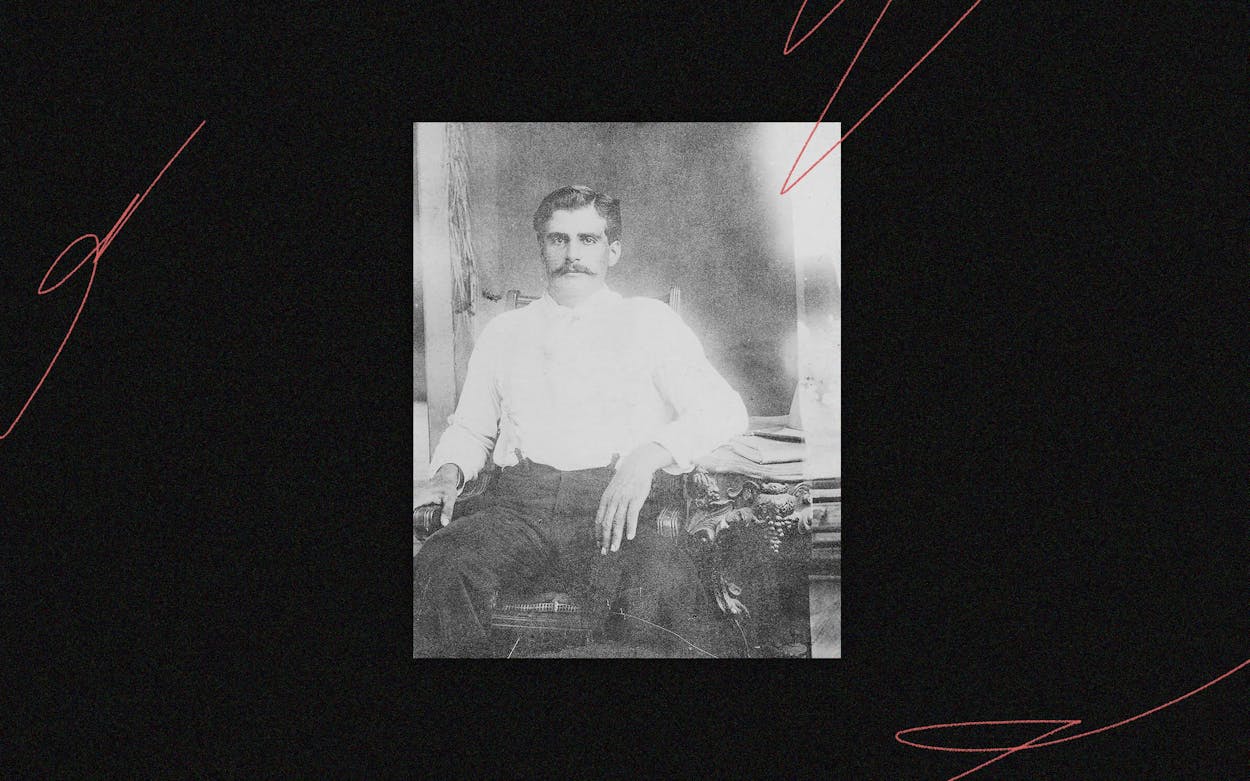“Two Burials,” published in the March 2010 issue, is an excerpt from Texas Monthly writer-at-large John Phillip Santos’s 2010 book The Farthest Home Is an Empire of Fire: A Tejano Elegy, which followed his 1999 memoir and National Book Award finalist Places Left Unfinished at the Time of Creation. “Two Burials” mines the sandy South Texas soil—mainly a strip linking San Antonio and Cotulla and Laredo—through which Santos’s roots run and offers a captivating peek into the author’s rich biography.
Amid a story that mostly revolves around his twice-interred grandfather (the handsome Leonides Lopez, “with his dark features, wavy black hair, handlebar mustache, and penetrating eyes he looks almost like a Tejano Emiliano Zapata”) and a posthumous revelation of marital infidelity that resulted in the secret birth a child, Santos offers a broad and vivid portrait of South Texas Latino culture. In prose that is peppered with well-deployed Spanish, the reader is taken on a compelling journey through an “ancestral homeland,” including a trip to Nuevo Laredo complete with a proper frontera shoeshine and a late lunch of cabrito at the famed El Rincón del Viejo.
Santos, who left his native Texas (he was born and raised in San Antonio) for Indiana; Oxford, England (Santos was the first Latino Rhodes Scholar); and New York, among other locales, is an award-winning writer, journalist, and documentary filmmaker. In 2010, the year “Two Burials” was published, he returned to San Antonio after more than two decades in Manhattan and has since then been a distinguished scholar in the University of Texas at San Antonio’s mestizo cultural studies program.
Santos chose to tell this story because “the story of my grandfather Leonides’s burials was never shared with us growing up,” he says. “It was revealed to me when I was delving into the Lopez’s and Vela’s families’ deep historical origins in Spain; their journeys to Mexico; eventually settling in Cotulla, Texas. The drama of Leonides’s death and burial seemed to me to have an epic quality—illuminating how all of our families harbor deep secrets that connect us to the deepest mysteries of being human.
“And often,” he says, “these only come to light after our passing, leaving it to our descendants to puzzle it all out.”
Today Leonides remains buried in Laredo, where he was joined by Santos’s grandmother Leandra in 1974. “Who knows how they sorted out the tangled web between them?” he says. “It’s ironic that their story should end with them reunited.”
- More About:
- Texas History
- San Antonio








